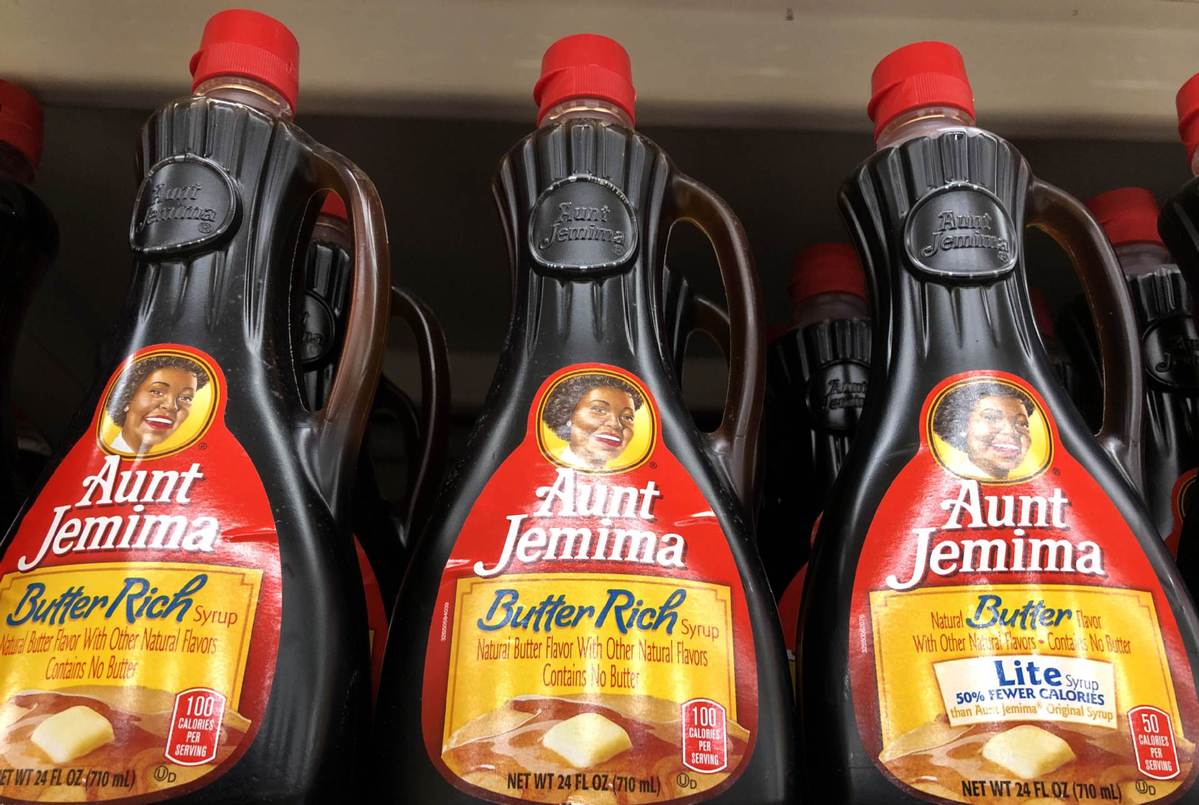Two US food brands to drop racial stereotypes from packaging
By AI HEPING in New York | China Daily Global | Updated: 2020-06-18 10:55

Hours after a 130-year-old American brand of syrup and pancake mix — Aunt Jemima — said Wednesday it was removing the face of a black woman from its packaging and will give it a new name because it's based on a racial stereotype, another major food icon — Uncle Ben's rice — said it will follow suit and drop its name and the product's packaging image of a black man with white hair.
Both announcements come amid protests across the nation and around the world sparked by the May 25 death of George Floyd, a black man, in the custody of Minneapolis police.
Quaker Oats Co, a subsidiary of soft-drink and snack-food giant PepsiCo Inc, made its announcement about Aunt Jemima on Wednesday morning.
Krisitn Kroepfl, vice-president and chief marketing officer of Quaker Foods North America, said in a news release that the company has worked to "update" the brand to be "appropriate and respectful", but it realized the changes were insufficient.
"We recognize Aunt Jemima's origins are based on a racial stereotype," Kroepfl said in the statement. "As we work to make progress toward racial equality through several initiatives, we also must take a hard look at our portfolio of brands and ensure they reflect our values and meet our consumers' expectations."
The brand will donate a minimum of $5 million over the next five years to support and engage with black communities, Quaker said.
The owner of Uncle Ben's rice, Mars Inc, soon followed with a statement announcing its move:
"As a global brand, we know we have a responsibility to take a stand in helping to put an end to racial bias and injustices.
"As we listen to the voices of consumers, especially in the Black community, and to the voices of our Associates worldwide, we recognize that now is the right time to evolve the Uncle Ben's brand, including its visual brand identity, which we will do."
"We don't yet know what the exact changes or timing will be, but we are evaluating all possibilities," the closely held food giant told The Wall Street Journal.
Mars said the Uncle Ben's brand dates to the early 1940s and was inspired by two people. The name came from a black Texan farmer, known as Uncle Ben, who grew high-quality rice, the company said. The face that appears on boxes and that has come to personify the brand was a Chicago maître d' named Frank Brown, Mars said. "Since then we have evolved and modernized the iconic logo," Mars said.
Originally, the image showed a white-haired black man in a blue suit with a black bow tie. Mars revamped the brand in 2007, elevating Uncle Ben to chairman of an imaginary rice company as part of an online ad campaign that showed the character in an opulent office.
But critics noted he still had the black bow tie, which they said evoked servitude, and the "uncle" honorific, reflecting a time when white Southerners used "aunt" and "uncle" because they didn't want to address black people as "Mr" and "Mrs".
The Aunt Jemima brand dates to 1889. It was inspired by a popular song, Old Aunt Jemima, typically performed in minstrel shows by a white man in blackface.
The creators of the pancake brand hired a former enslaved woman, Nancy Green, to be its spokeswoman. She made her debut as Aunt Jemima at the Chicago World's Columbian Exposition of 1893, singing, telling stories and making pancakes.
Early magazine ads for the pancakes promoted the brand's slogan, "I'se In Town, Honey", and directed readers to send 4 cents in stamps for a life history of "Aunt Jemima and her Pickaninny dolls". The pancake's packaging featured an image of a black woman wearing a head scarf.
Three years after Green's death, Quaker Oats bought the business in 1926 and hired a new spokeswoman, Anna Robinson, a heavier woman whose appearance was closer to the "mammy" stereotype of the minstrel shows.
The company redesigned the brand around her likeness. In 1989, Quaker Oats updated the brand's imagery, replacing a headscarf with pearl earrings and a lace collar. PepsiCo bought the business in 2001.
























